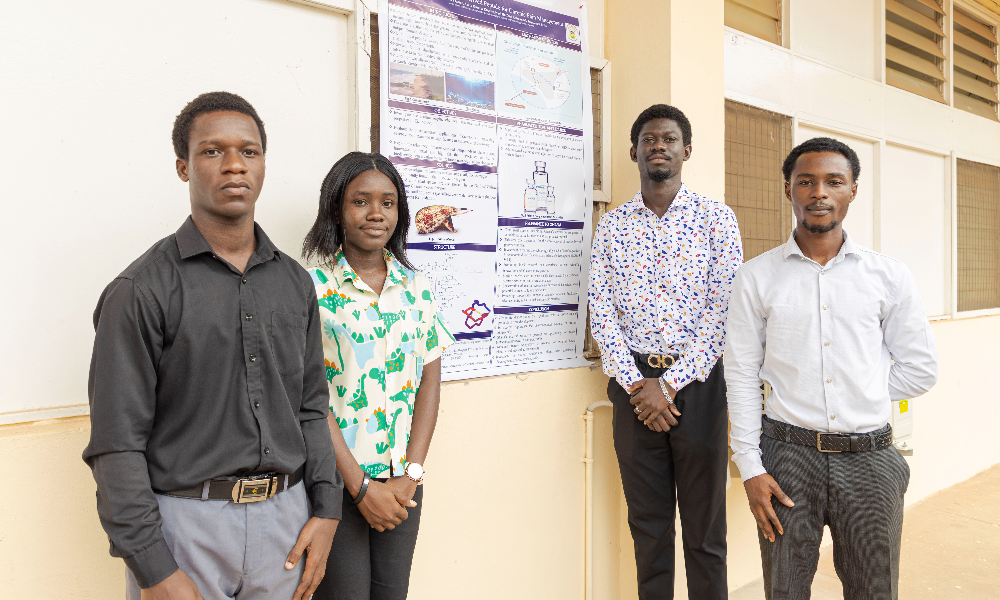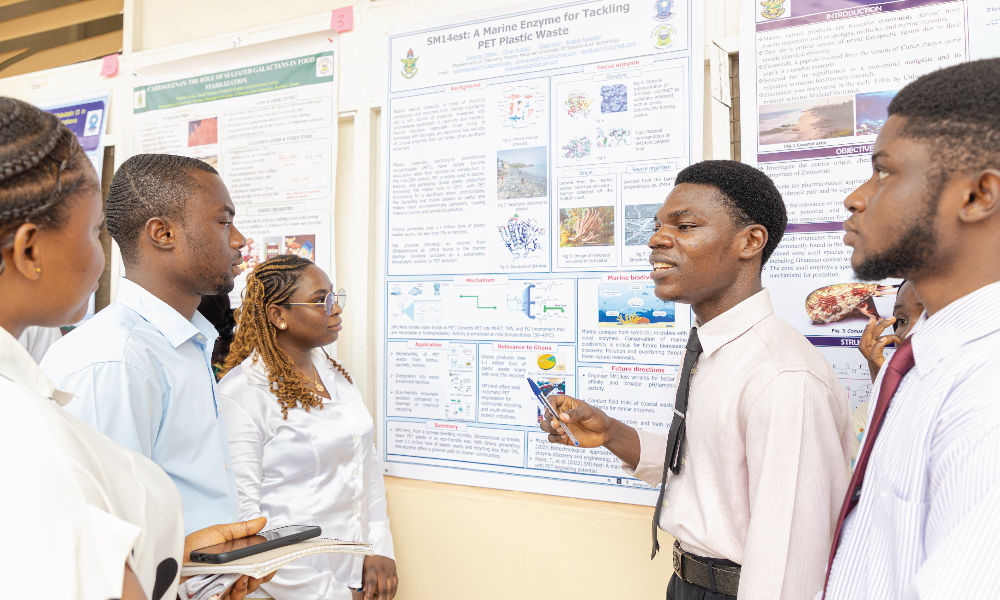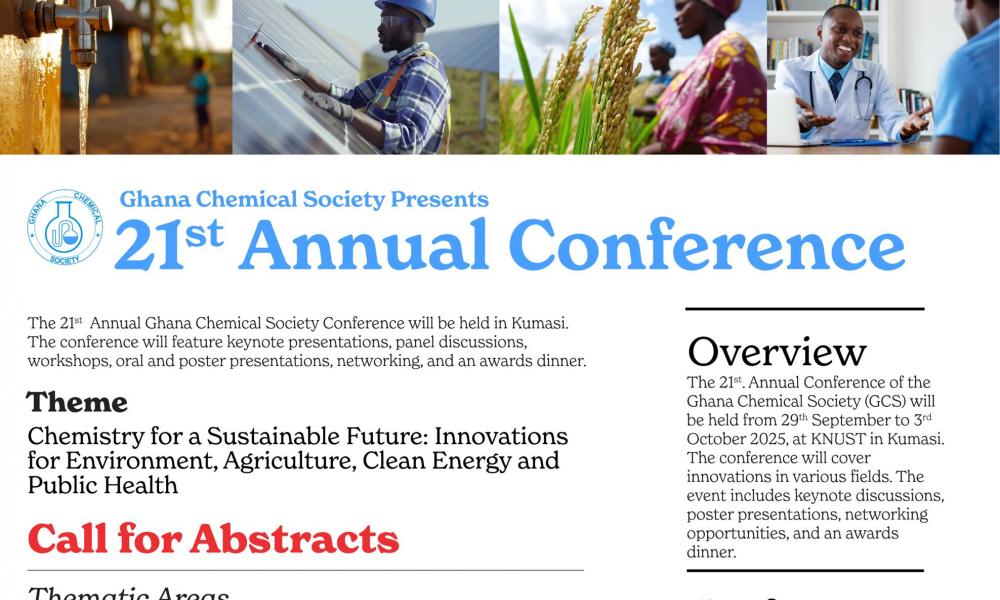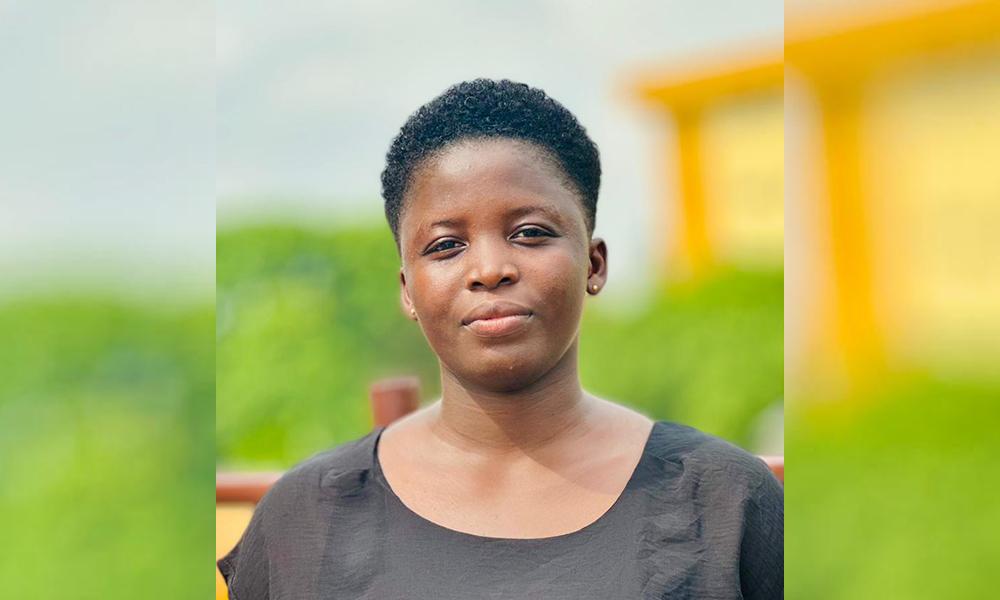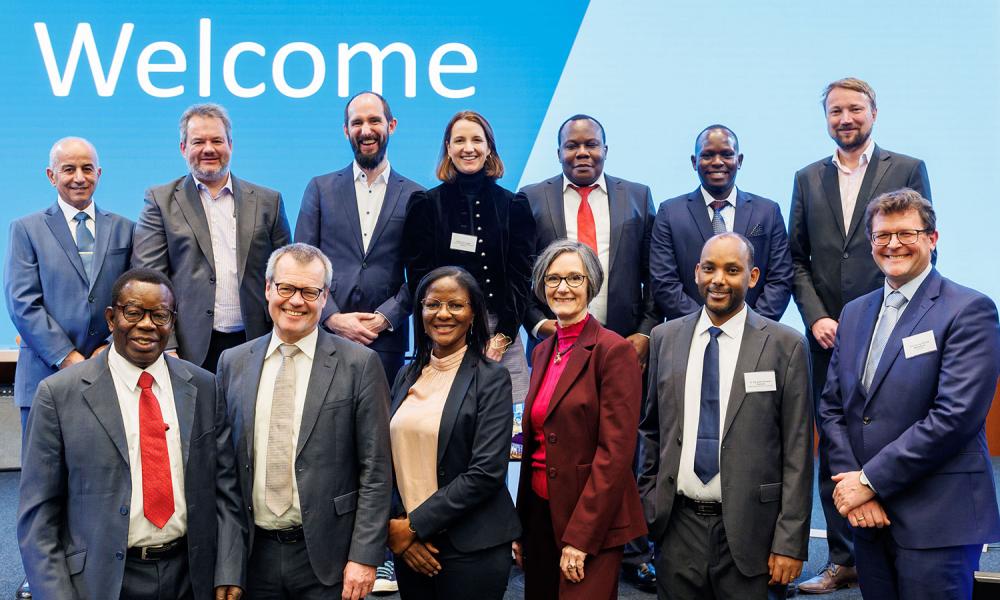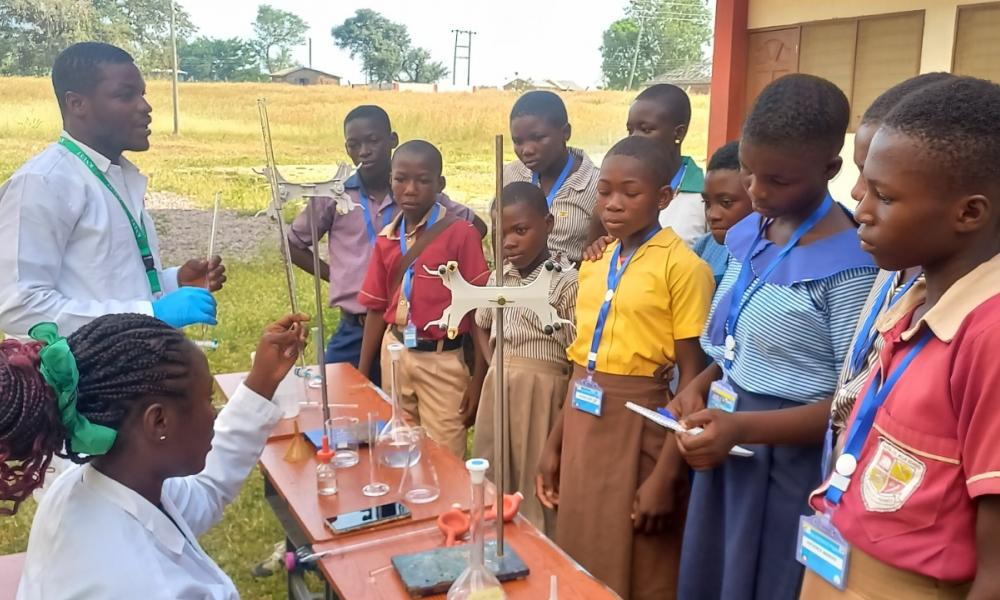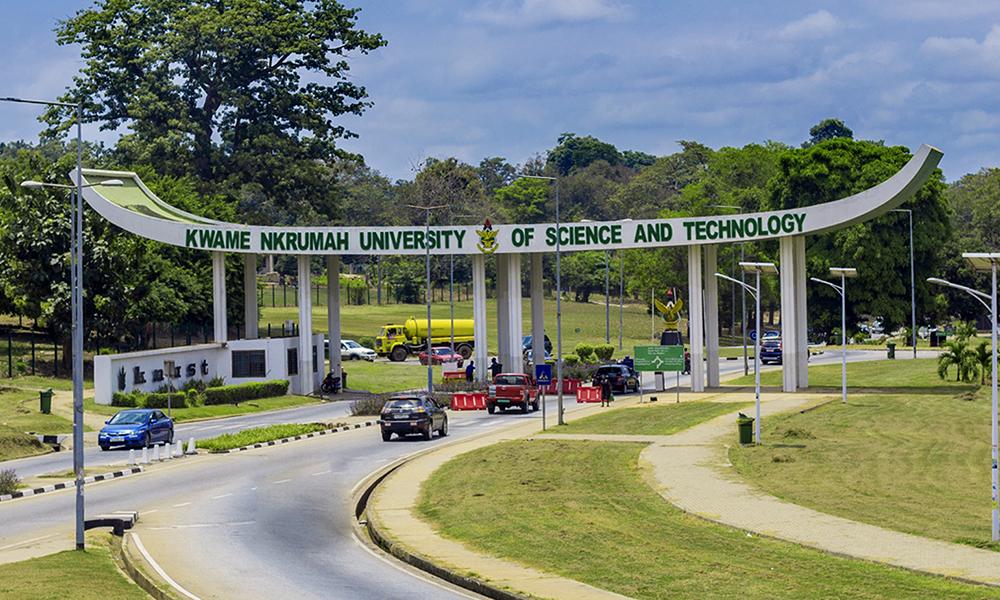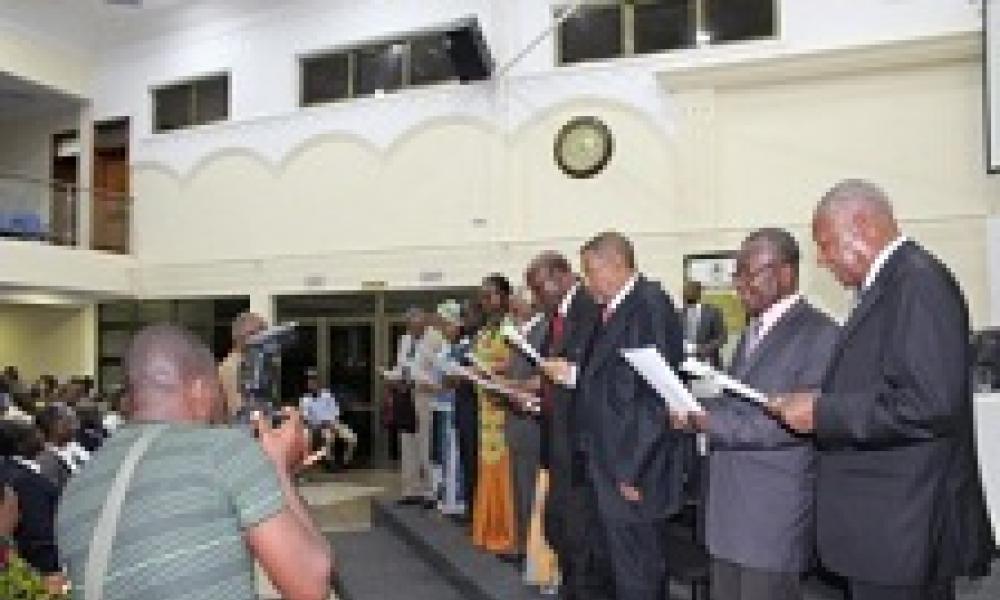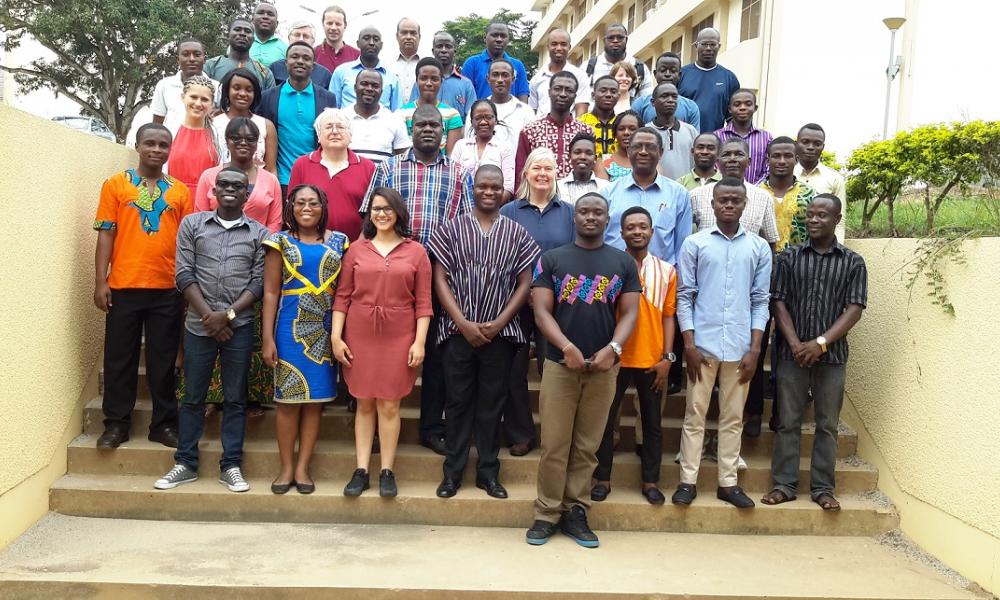Professor Johannes A. M. Awudza wins German-Africa Innovation Incentive Award
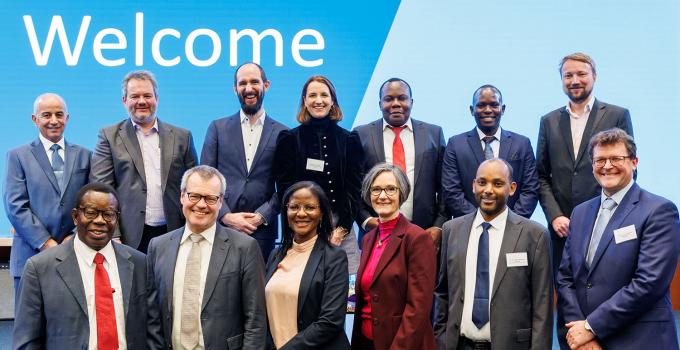
The German-African Innovation Incentive Award – GAIIA
Professor Johannes A. M. Awudza gets awarded along with his collaborator, Prof. Dr.-Ing. Stephan Scholl, by the German Federal Ministry of Education and Research for their work on plastic waste recycling that is geared towards bettering our environment. The award is titled 'German-African Innovation Incentive Award' and it is an instrument by the said ministry to strengthen innovative research in Africa and to translate research results into practical solutions that benefit African societies. The aim is to improve the living conditions of people in Africa. German-African partnerships are an important success factor.
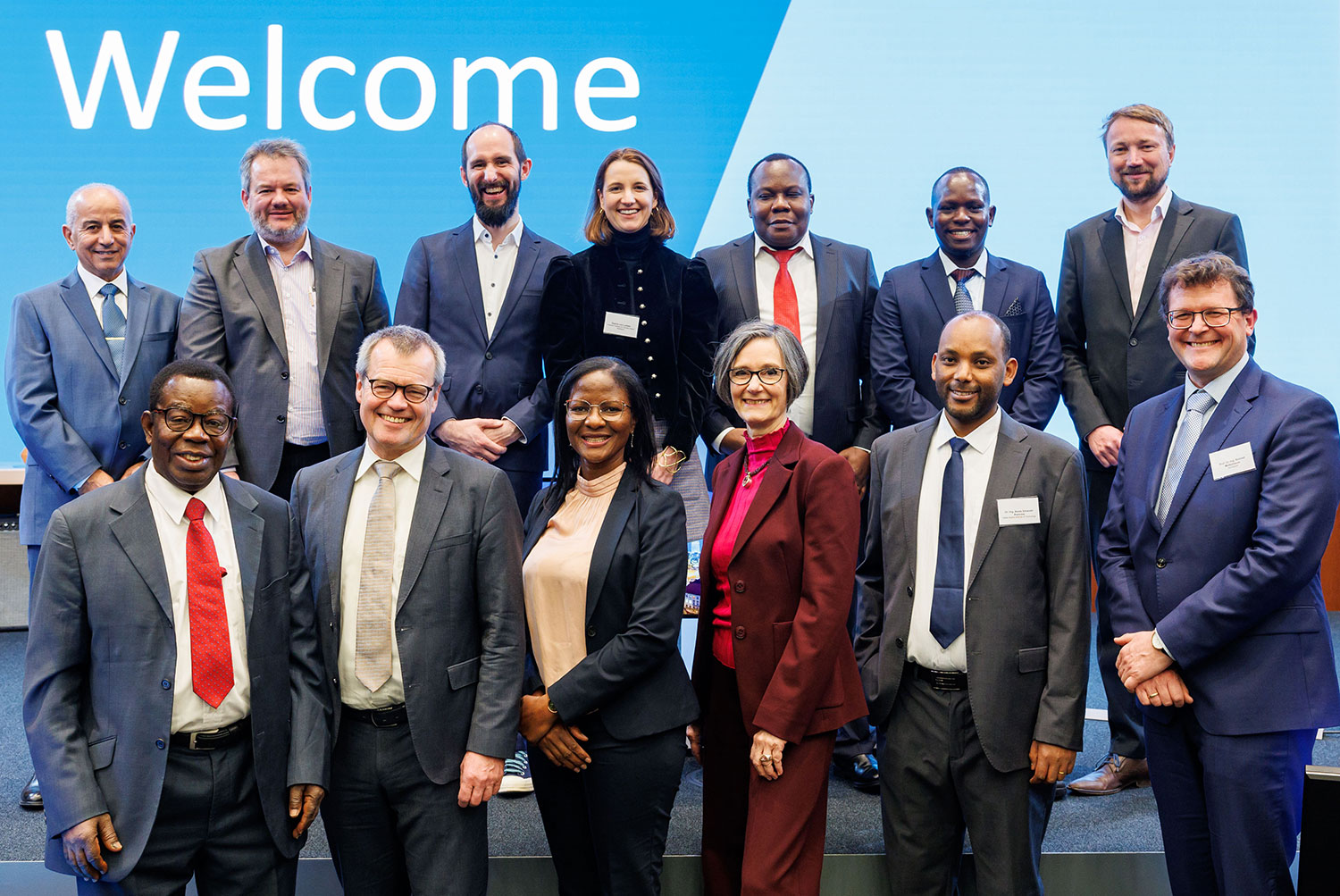
Prof Awudza on First from left in lower row.
The Federal Ministry of Education and Research (BMBF) honours outstanding achievements of African scientists with the German-African Innovation Incentive Award (GAIIA). The Award supports the further development of research results into innovative solutions that address the societal and environmental challenges on the African continent and benefit the population. It was first presented in 2018.
So far, 16 scientists from 10 African countries have been awarded and received funding of up to 150,000 euros for realising a joint research project with high exploitation potential, together with their German partners.
In 2024, more than 60 project proposals were received but only 6 of them were eventually selected and awarded in Berlin on 12 December, 2024. These include Prof Awudza's project titled: “Plastic Waste Recycling: Empowering local stakeholders for higher valorization of plastic wastes through transfer and adaptation of chemical recycling technology”.
Project description:
Title: PlasticWasteRecycle - Empowering local stakeholders for higher valorisation of plastic wastes through transfer and adaptation of chemical recycling technology
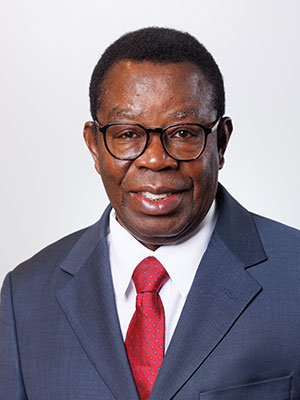
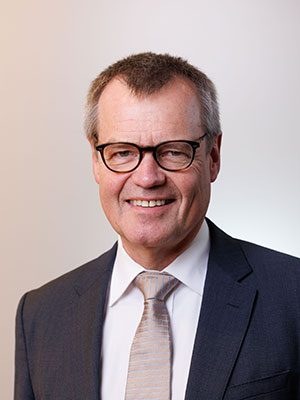
Prof. Dr. Johannes A. M. Awudza, Prof. Dr.-Ing. Stephan Scholl,
Kwame Nkrumah University of Science and Technology (KNUST), TU Braunschweig,
Department of Chemistry, Institute for Chemical and Thermal Process Engineering,
Kumasi, Ghana Braunschweig, Germany
Project Details
Plastic waste is one of the world's biggest environmental burdens. In most countries of the global South, rising prosperity is accompanied by a waste problem that is almost impossible to control. Plastic waste in particular is a burden on nature, on land, in the air and in water. At the same time, many people make a living from waste, for example by collecting it, sorting it and selling it on as secondary raw materials.
In Ghana, plastic waste is collected and sorted either by commercial or municipal systems or in the informal sector by recyclables collectors and cooperatives. Clear PET beverage bottles in particular can be mechanically recycled and processed into new bottles. Plastic waste that is not suitable for mechanical recycling, such as coloured PET bottles or multilayer materials, is often incinerated or sent to landfill and is thus lost to the material cycle. With the innovative revolPET® chemical recycling process developed in Germany, these waste streams can also be recycled and returned to the cycle. This is precisely where the Plastic Waste Recycle cooperation project comes in by developing an integrated recycling concept for plastic waste in Ghana that combines complementary recycling technologies with the local collection and sorting systems. To this end, waste streams are being analyzed in order to develop three alternative recycling routes: mechanical recycling, the revolPET® process and the pyrolysis process. By transferring and adapting a new type of recycling technology, the aim is to open up a new, marketable recycling stream for recyclable material collectors and cooperatives operating in Ghana and thus create a new, environmentally friendly business segment.
The results of the project will benefit municipal and commercial recyclables collectors who, thanks to the integrated recycling concept, will be able to sell the high-quality plastic waste to recycling companies at a better market price. This provides an incentive for private and public investors to enter the business field with innovative revolPET® systems by setting up companies that handle everything from the collection to the pre-processing of plastic waste.
Prof. Dr. Johannes Awudza receives the German-African Innovation Award (GAIIA) for his excellent research in the field of catalytic polymerization processes and pyrolysis of waste plastics in combination with a convincing proposal for a German-African cooperation project that further develops these research results into user-oriented solutions.
Contacts:
Prof. Dr. Johannes A. M. Awudza
Kwame Nkrumah University of Science and Technology (KNUST)
Department of Chemistry
Kumasi, Ghana
jamawudza.sci@knust.edu.gh
Prof. Dr.-Ing. Stephan Scholl
TU Braunschweig
Institute for Chemical and Thermal Process Engineering
Braunschweig, Germany
s.scholl@tu-braunschweig.de
